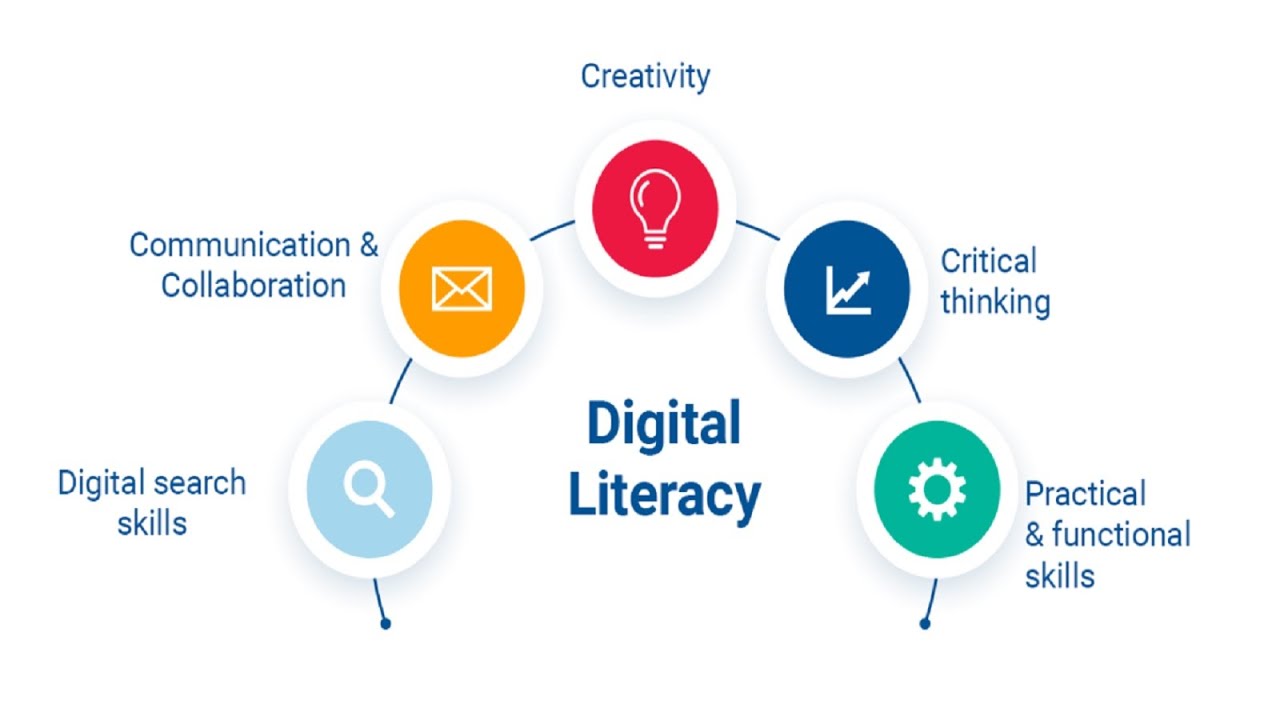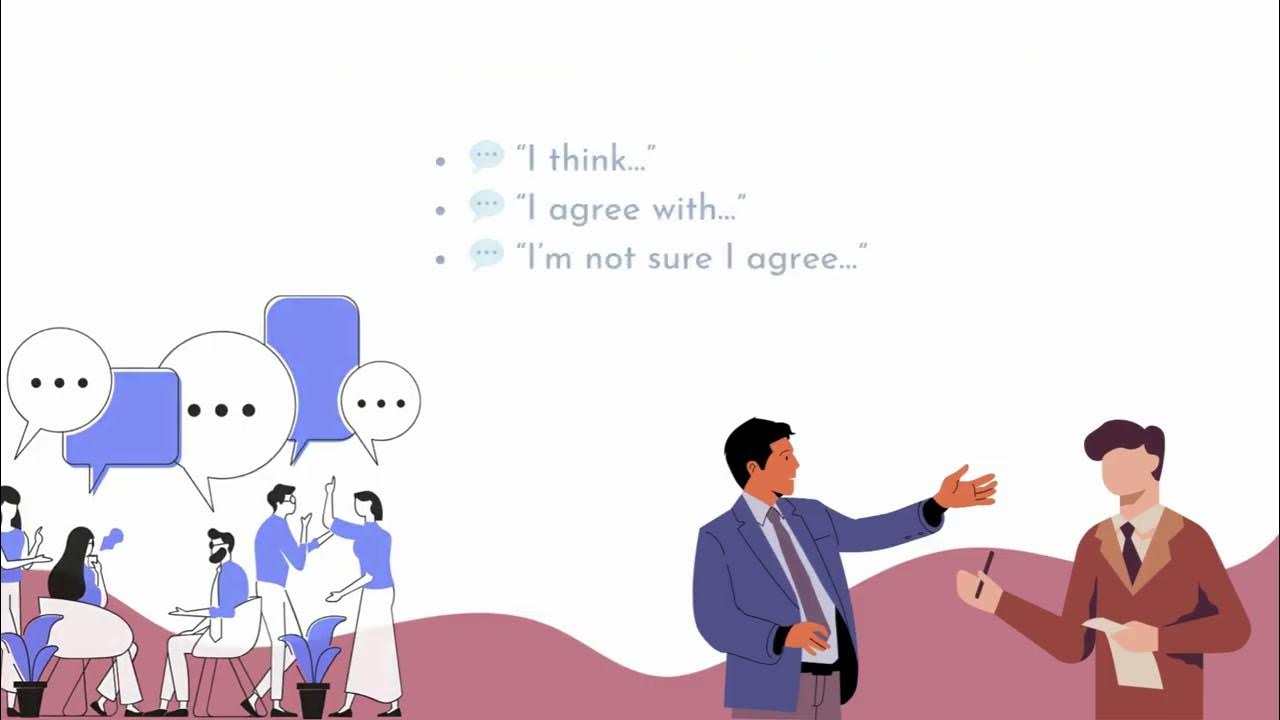Membimbing Murid Menjadi Warganet yang Baik
Summary
TLDRThe video script addresses the importance of digital literacy and responsible online behavior for students. It showcases various educators implementing strategies to teach students about online safety, critical thinking, and respectful communication. Teachers guide students to understand the concept of 'strangers' online, discern fact from fiction in social media, and practice courteous behavior in diverse online environments. The script also highlights the need for students to reflect on their actions in the digital world, promoting the development of a positive online community.
Takeaways
- 🌐 The digital world is an integral part of students' lives, where they interact with peers, seek information about their idols, and find learning materials for class.
- 🚷 Not all students are responsible netizens, as evidenced by the prevalence of cyberbullying, fake news, and online gaming addiction.
- 🧐 It's crucial to enhance students' social and emotional skills in the real world and teach them to be responsible digital citizens.
- 👨🏫 Pak Bayu, a PAUD teacher, educates his students about the concept of 'strangers' online, emphasizing the importance of privacy and safety.
- 🤔 Pak Bayu encourages students to think critically about what information they can and cannot share with strangers online, such as not disclosing personal details like home address or full name.
- 📚 Bu Sari, a grade 5 teacher, conducts a classroom activity to train students to critically assess the truthfulness of information, using statements about the formation of ASEAN as an example.
- 🔎 The activity emphasizes that even statements ending with a period may not necessarily be factual and require verification.
- 📊 Pak Di, a Pancasila education teacher, motivates students to be wise and polite in the digital world by using a tool like Mentimeter to gather opinions and foster constructive discussions.
- 🤝 Pak Di encourages students to reflect on diversity and to give and receive positive, constructive feedback on each other's opinions.
- 🌐 Bu Novi, a social studies teacher, provides basic services to students about the importance of self-awareness in the digital world, aiming to make them consider the impact of their actions online.
- 📈 Bu Novi uses case studies of online hate comments to engage students in discussions about the roles involved, the impact on victims, and ways to combat hate speech and build positive online communities.
- 🎨 Bu Novi encourages students to express their learning outcomes through posters, writings, or other products based on their interests, promoting creativity in addressing digital citizenship.
Q & A
What is the importance of digital literacy for students today?
-Digital literacy is crucial for students as it is an integral part of their daily lives, enabling them to interact with peers, seek information, and access educational resources online.
What challenges do students face in the digital world according to the script?
-Students face challenges such as cyberbullying, exposure to fake news, and addiction to online games.
How did Mr. Bayu teach his preschool students about online safety?
-Mr. Bayu explained the concept of strangers both in the real world and online, guiding his students on what information is safe to share and what should remain private.
What strategy did Ms. Sari use to teach critical thinking regarding online content?
-Ms. Sari conducted a classroom activity where students evaluated the truthfulness of statements about ASEAN, linking it to the importance of verifying social media content.
How does Mr. Di address the issue of online bullying in his class?
-Mr. Di encourages his students to express their opinions constructively and to reflect on their behavior online, fostering a respectful and wise approach to digital interactions.
What method does Ms. Novi use to teach high school students about online self-awareness?
-Ms. Novi uses case studies on hate speech, prompting students to discuss the roles involved, the impact on victims, and strategies to combat negative online behavior.
What type of activities can teachers implement to promote responsible digital citizenship?
-Teachers can engage students in role-playing, art projects about digital footprints, poster creation, and inviting guest speakers to discuss online responsibility.
Why is it important to teach students about privacy and security online?
-Teaching students about privacy and security is important to protect them from potential dangers such as identity theft, cyberbullying, and other forms of online exploitation.
How can students apply critical thinking skills when evaluating online information?
-Students can apply critical thinking by questioning the source of information, verifying facts, and considering the credibility of the content before accepting it as truth.
What is the overall goal of the practices mentioned in the script?
-The overall goal is to guide students in becoming responsible and wise netizens who can navigate the digital world safely and thoughtfully.
Outlines

This section is available to paid users only. Please upgrade to access this part.
Upgrade NowMindmap

This section is available to paid users only. Please upgrade to access this part.
Upgrade NowKeywords

This section is available to paid users only. Please upgrade to access this part.
Upgrade NowHighlights

This section is available to paid users only. Please upgrade to access this part.
Upgrade NowTranscripts

This section is available to paid users only. Please upgrade to access this part.
Upgrade NowBrowse More Related Video

B Etika Berinternet Netiket

Literasi Digital : Cakap Digital

Mengenal Empat Pilar Utama Literasi Digital | Kecakapan, Budaya, Etika, dan Keamanan Digital

Juara 1 Pidato Bahasa Indonesia Pi PORSENI MTS SE JATIM 2023 (Pemanfaatan Media Sosial)

BAB 6 Literasi Digital dalam Kebinekaan Bangsa

Digital Literacies and My Identities - Project Micro Teaching CALL
5.0 / 5 (0 votes)